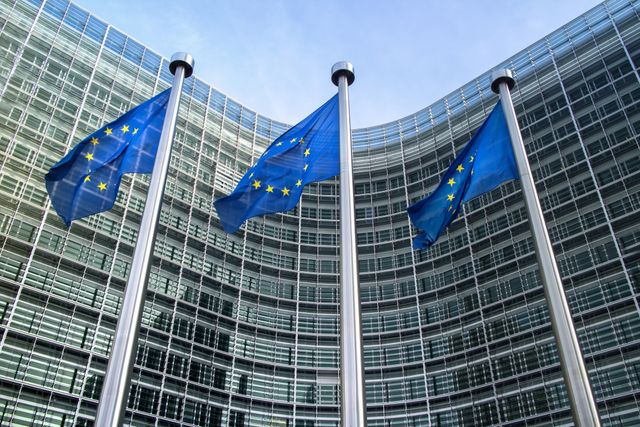Last week, the European Commission fined Mondelēz, the producer of Oreo cookies, Cadbury’s Dairy Milk, and Toblerone, €337.5 million for restricting cross-border trade of snack and coffee products in the EU in breach of competition law. The enforcement signals continued focus on parallel trade restrictions under antitrust rules, with more fines possible in energy drinks and food delivery.
Background
In November 2019, the Commission carried out unannounced inspections at Mondelēz’s Austrian, Belgian and German premises in relation to concerns that it had hindered parallel trade between EU Member States through distribution agreements and unilateral practices.
In January 2021, the Commission opened a formal investigation, and last week, the Commission concluded the investigation with the adoption of a €337.5 million fine. This was around €37.5 million higher than Mondelēz had anticipated (see Mondelēz Annual Report 2022). And it meant that the Commission went from opening of proceedings to fining decisions in just over three years.
Mondelez’s Infringements
The Commission found that Mondelēz breached both Article 101 of the Treaty on the Functioning of the European Union (TFEU) (anticompetitive agreements) and Article 102 TFEU (abuse of a dominant position), by preventing wholesalers and retailers from procuring products in one EU Member State (where prices were lower) and trading them in other EU Member States in the EU (where prices were higher). This resulted in higher-priced chocolate, biscuits, and coffee for consumers. In more detail:
- Anticompetitive agreements: between 2012 and 2019, Mondelēz allegedly prevented wholesalers from reselling Mondelēz’s products into certain territories or to certain customers. One agreement required a wholesaler to apply higher prices to exports than domestic sales. Separately, between 2006 and 2020, Mondelēz restricted passive sales, by preventing exclusive distributors based in EU Member States from responding to sale requests from customers located in other EU Member States.
- Abuse of dominance: between 2015 and 2019, Mondelēz refused to supply a broker in Germany and the Netherlands, to prevent the resale of chocolate tablets (like Milka or Cadbury’s) in EU Member States with higher chocolate prices – including Austria, Belgium, Bulgaria, and Romania. This type of abuse parallels the long running GSK Spain case in which the Commission enforced against GSK for charging exporters higher prices than it charged to domestic wholesalers.
Implications
The EC’s fine on Mondelēz’s tops the Commission’s fine of €200 million on AB InBev for restricting parallel trade in relation to the supply of beer. It serves as a reminder parallel trade restrictions remain an enforcement priority for the Commission, as they cause an artificial partitioning of the internal market and prevents retailers from freely sourcing within the EU.
In addition, the case revives refusal to supply enforcement after a period of seemingly avoiding it (Google Shopping, Lithuanian Railways, Slovak Telekom and other cases). Refusal to supply investigations are often brought against vertically integrated companies that are dominant in the upstream market and actually or constructively refuse to supply their rivals with a must have input on the downstream market, with the aim of foreclosing rivals.
EVP Vestager has already foreshadowed more enforcement in food retail, with energy drinks and food delivery services top of the list. In energy drinks, the Commission is examining the conduct of Red Bull under Article 101 and 102 TFEU to consider whether it has anticompetitively foreclosed rival energy drink firms.
In March 2023, the Commission carried out unannounced inspections at Red Bull’s premises in various EU Member States, including in Austria, France and the Netherlands. During the Commission’s on-site inspection, Commission officials seized a large number of electronic documents and requested that Red Bull submit data from mobile phones, email accounts and data located in the cloud or on the company’s servers.
On May 30, 2023, Red Bull brought an action for annulment of the Commission’s decision, and on July 18, 2023, the General Court (GC) received Red Bull’s application for interim measures, asking the GC to suspend the Commission’s decision to inspect Red Bull’s documents. On September 29, 2023, the GC dismissed Red Bull’s interim measures application, as it found that Red Bull had not established the legal prerequisite of urgency. Red Bull’s attempted court action has not, thus, decelerated the Commission.
In the food delivery sector, the Commission is examining, among other things, whether labour and employment restrictions infringe European antitrust rules.
Subscribe to Ropes & Gray Viewpoints by topic here.
Authors
Stay Up To Date with Ropes & Gray
Ropes & Gray attorneys provide timely analysis on legal developments, court decisions and changes in legislation and regulations.
Stay in the loop with all things Ropes & Gray, and find out more about our people, culture, initiatives and everything that’s happening.
We regularly notify our clients and contacts of significant legal developments, news, webinars and teleconferences that affect their industries.



